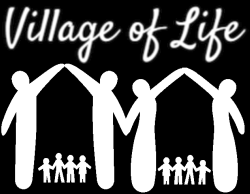Step number one is gathering the strength you need to walk out. My strength came from believing that leaving would make my life and my children’s lives better. Then I convinced myself that I could make it on my own. This is probably the hardest step because we have been programed for so long to believe that we cannot make it… that we need the person that is beating us down each day to survive. In actuality, that breaking you down is giving you strength and endurance like no other. I know that statement sounds ridiculous so let me put in a side story to help you understand what I mean.
Almost right out of high school, I joined the Air Force. Friends and family laughed and ridiculed me because they did not think that I could make it through basic training. To be honest, I was not sure I could either. I was a skinny, knobby kneed little girl that was scared of her own shadow. I would burst into tears if someone even looked at me cross. I knew that it would not be easy but I was willing to try so that I could have the means to pay for college. Once I got to basic training, I found that I flourished. You see…. the military beats you down during basic training so that they can turn around and build you up in the image that they need you to be. They need you to have strength and endurance so that if you should go to war, you will have the strength needed to come home in one piece. I believe that the Lord gives you trials because he knows you have the strength inside to overcome them, he just needs you to realize it as well. These trials build you up and prepare you for what is ahead. The longer you have been in an abusive relationship, the stronger you will be when you finally break free. I am not saying that it is easy… but the best things in life never are.
Even after leaving, I had to continually convince myself that I can do it on my own. Each morning for three years, I looked in the mirror and told myself that I am strong enough, smart enough and worth enough before I started believing it. It helped that I had a lot of friends and family rooting for me all along the way.
*Note: If you are not the one in a violent relationship but have someone you love who is, the best help you can give them is words of encouragement to keep moving forward. I have heard that we need 7-10 positive words to outweigh the negative ones. As a friend or loved one, you have your work cut out for you.
Before you leave, make sure that you are amply prepared to do so. The first mistake that I made was not gathering (or presenting) proof that would help me protect my children easier. Let me elaborate a bit… The last year I was with my husband, I kept a journal about the problems we had in our marriage. I started the journal as a way of releasing some of the things I was keeping completely inside. Outside of my journal, I only told one person about the things going on in my home. My own family did not have a clue what my daughter had accused my husband of or the drugs I knew that he was on. I was too ashamed to tell anyone but my best friend about what my daughter had said. When the Department of Child and Family Services (DCFS) worker asked me if I had a journal or if I had told anyone else what was going on, I did not have the courage to tell her yes because she asked me in front of my husband. I was much more concerned about how angry he would get and the rath that would come after she left than proving I was telling the truth. Instead I trusted that the DCFS worker would write in her report that he admitted to doing drugs and that he admitted my daughter had accused him of this unthinkable act right in front of him. The lesson learned here is that you have to gather enough evidence and present it to the authorities so that they can do their job. Some of that evidence might include keeping a journal of violent incidences, medical records, and a list of witnesses who may be able to speak on your behalf. If you have experienced physical abuse, pictures of your cuts and bruises are vital. Do not hesitate to go to the emergency room right after being attacked. It is going to be your word against theirs’ if you do not gather the proper evidence.
Other things that are vital are important documents like birth certificates, driver’s license, pass ports, and important phone numbers. Gather them and put them in a safe place where you can grab them quickly if you should have to leave before you plan to.
A few of the things that I did right were: 1) find a place to live and leave without confronting my husband, 2) apply for a restraining order on my children’s behalf, 3) never give up doing everything that I can to protect them, 4) learn to seek the help of others.
1) I was extremely fortunate to find a great place in a safe neighborhood that I could afford. Before actually moving, I spent two weeks cleaning and arranging clothes and household items that I would need so that I could pack them quickly. I also arranged to have movers pack and move everything we could in one day while my husband was at work. I knew all too well that anything I left would be ruined as soon as he noticed we were gone so I told the movers to take everything that looked like it belonged to me or my children. Then I returned anything that was actually his a few months after leaving when I felt safe enough to hand it to him.
2) The day before I moved out, I spent the day at the courthouse getting a restraining order to protect my children. With the restraining order, I was able to have police stand guard while I packed everything my children and I would need to get by in our new home. This gave me the sense of security that I needed so that I could pack more efficiently. (If you are constantly in a state of fight or flight, your mind does not think as clearly and you tend to miss a lot of things.)
3) I never gave up. For the last five years, I have fought to keep my children safe. I have spent a lot of time and money in and out of court trying to prove that my children need to visit their father under the protection of a professional supervisor. I have succeeded multiple times in getting supervised visitation ordered only to have it revoked a few months to a year later because he refused to visit with my girls with a supervisor present. The courts seem to believe that a bad father is better for my children than no father at all. In 2008, when I succeeded in getting supervised visitations ordered, I was dating someone whom I cared about a great deal. When I no longer had full weekends without my children, he realized that staying with me would mean raising someone else’s children. He was not ready for that. It would have been easy for me to give in and let my ex-husband have unsupervised visitation so that I could be with this man but I knew that my children needed supervised visitation more than I needed a man in my life. I also realized that the only man for me is one that is willing and able to help me raise my children in a healthy and loving home.
4) Before even leaving, I had my daughter in counseling. As part of that, I had the opportunity to go through Parent Child Interaction Training (PCIT). This by far was the best thing that could have happened for my children and me. PCIT gave me parenting skills that I would not have thought to gain otherwise. It also brought me and my children much closer than would have been possible without it.
I am just now realizing how long this post is getting so I will cut it short. There are a number of other steps you will want to consider taking according to Dr. Phil. A full list of them is below.
· If you are in immediate danger, call the police.
· Develop an escape plan which does not include confronting your abuser.
· Contact your local battered women’s shelter, and know about laws and resources available to you before a crisis.
· Keep evidence of physical abuse.
· Keep a journal of all violent incidences.
· Take important phone numbers.
· Gather important documents — medical records, birth certificates, driver's license.
· If injured, go to the doctor, report what happened and document the visit.
· Plan with your children, and identify a safe place for them to go for help.
· Try to set money aside.
· Pack an extra set of clothing for yourself and your children.
· Request police standby or an escort to the shelter.
If you need immediate assistance do not hesitate to call the National Domestic Violence Hotline at 1 (800) 799-SAFE (7233).
"Life is not about waiting for the storm to pass...It's about learning to dance in the rain." - Vivian Greene



 RSS Feed
RSS Feed
